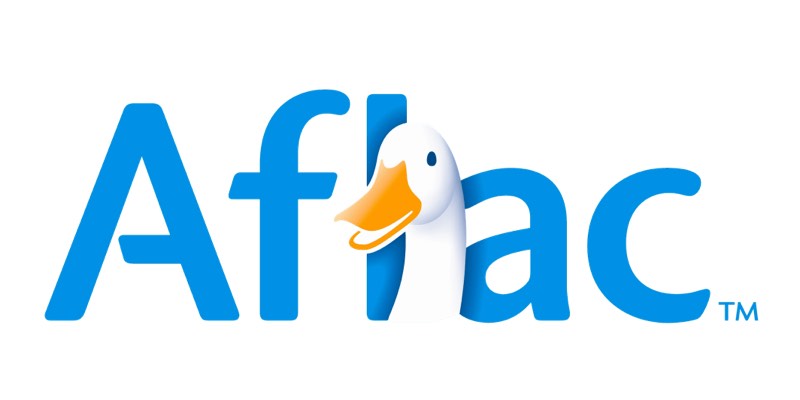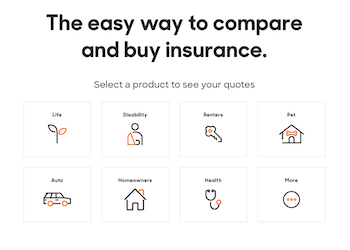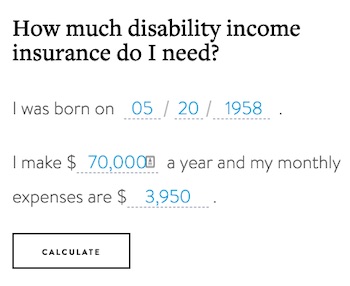Best Disability Insurance
Updated:
Retirement Living takes an unbiased approach to our reviews. We may earn money when you click a partner link. Learn More
We evaluated 25 disability insurance companies and selected the top 4 companies to help you find the best disability insurance company.
- Fast Quotes
- Online application process
- Flexible coverage options
Breeze is the first tech company to modernize the disability insurance industry, which is typically confusing and slow. Breeze’s application is 100% online and offers plans for as little as $9 per month.

- Great One-Stop Shopping
- Over $25 billion worth of insurance sold
- Website is well-organized and focused
Policygenius provides simplified comparison shopping with policies from trusted disability insurance companies and unbiased advice. The company also sells life, homeowner’s, rental, auto, health and other types of insurance.

Aflac
- Fastest Claims Payments
- One Day Pay for a 24-hour turnaround on benefits
- No-Medical-Exam option
Aflac has been specializing in disability insurance for over 60 years. The company offers short-term disability coverage from three to 24 months, and you don’t pay for coverage while you are unable to work.

MassMutual Disability Income Insurance
- Great Benefit Period Options
- Benefit payouts over a selected number of years or up to age 65, 67 or 70
- Exceptional financial stability, MassMutual is owned by its policyholders
Mass Mutual offers a disability policy that pays benefits up to the age of 70, which is longer than most other companies will pay. The company also provides several riders to extend the circumstances disability benefits can apply to, such as a student loan rider.

Mutual of Omaha Disability Insurance
- Great Simple Disability Policy
- Choice of four disability insurance policies
- Fast online quotes
Mutual of Omaha offers a few types of disability insurance, including the easy-to-understand Priority Income Protection policy. This disability insurance offers simplified terms, a shortened application and fast approval process.
Compare Top Disability Insurance Companies
We evaluated 25 disability insurance companies and came up with the top four choices. We carefully considered policy options, company reputation, financial strength, ease of application and other criteria in our evaluations. The companies we ranked highest for disability insurance are Policygenius, Aflac Disability Insurance, MassMutual Disability Income Insurance and Mutual of Omaha. This guide explains who needs disability insurance, what the policies cover and how to choose the best disability insurance for your needs. We’ll also discuss costs and share detailed evaluations of our top disability insurance companies. Finally, we included frequently asked questions about disability insurance later in this guide.
Top Disability Insurance Tips:
- Disability insurance has a waiting period, so you’ll still need some savings to live on before benefits begin.
- Be prepared with dates and details of medical diagnoses for your application, whether applying online or in person.
- Accident-only disability insurance doesn’t cover lost wages due to long-term illness but is very affordable.
Tips for a Wise Buyer
The probability of needing income-replacing disability insurance is likely higher than you think. We found the best disability insurance companies to work with to maintain your financial independence if you are hurt or have a long-term illness and can’t work.
What is Disability Insurance?
Take the population of 20-year-olds in the U.S., and the Social Security Administration estimates one in four will be disabled for at least three months before they turn 67 years old. Disability due to injury, illness or prolonged recovery from open-heart surgery, cancer or other severe conditions can destroy life savings, causing significant financial stress. Disability insurance is designed to replace your income if you can’t work and you’re not retired.
There are two primary types of disability insurance: long-term and short-term. The long-term option pays benefits, starting a set number of months after you stop working and pays out from several years up to the end of your life, depending on your policy. Short-term disability insurance pays out much sooner but typically only for two years. We outlined other types of disability insurance in the chart below.
| Long-term | Comprehensive coverage, potentially up to retirement. |
|---|---|
| Short-term | Receive benefits quickly, but over a shorter period. |
| Mortgage | Pays monthly mortgage payment for one to three years. |
| Supplemental | Covers the gap between employer’s disability benefit and the amount insured was earning. |
| Accidental | Pays on disability due to an accident, not an illness. Lower premiums. |
| Business Expense | Pays business operating costs if the owner becomes disabled. |
What About Social Security Disability Insurance?
If you have been paying income taxes or self-employment tax long enough, you could qualify for benefits from the Social Security Disability Insurance program. However, you must be considered disabled for a year before you are eligible for benefits.
Those who are physically capable of working part-time and earn over $1,220 a month (for 2020, adjusted annually) do not qualify for SSDI. It’s wise for most people to look into buying an individual disability insurance policy and not to rely on Social Security for disability income.
Disability Insurance for Seniors in the Workforce
People are working longer in the U.S., in part because of increased longevity due to medical advances. The Department of Labor’s Bureau of Labor Statistics found that 40% of those 55 and older are working or actively seeking employment. Many of the occupations in average or fast-growing industries include at least one-third older workers.
Many would-be retirees look forward to working at least part-time because they enjoy the work, but a large segment of these employees are working to pad retirement savings or to pay bills. These individuals are earning money they would miss if they couldn’t work. If you are between 55 and 67 years of age and can’t depend on your retirement income to hold you over if you are unable to work, disability insurance is worth considering. If your retirement is financially secure and you’re still working, you can probably skip disability insurance, although you can’t go without medical insurance or a homeowner’s or renter’s policy.
How Much Disability Insurance Do You Need?
Disability insurance benefits are monthly payments, so consider how much income you need until you can get back to work. If you don’t already have a household budget, take the time to put one together, considering monthly, quarterly, semiannual and annual expenses. Then take a look at where you could cut costs to live on a lower monthly disability payment. If your benefit amount is less, so is your monthly premium, but don’t shave back expenses too close. You may be able to reduce your car insurance premium and cost of gas if you’re not driving to work for a few months or more. On the other hand, you may have to pay your entire annual medical insurance deductible in a short period as medical bills roll in, and then there are the copays to consider.
If you’re reluctant to do this analysis, buy enough disability insurance to cover the amount of your after-tax paycheck. Finally, don’t buy more disability coverage than you need. If the insurance company you work with tries to sell you a more extensive policy than you feel is necessary, find another insurance company.
The Cost of Disability Insurance
The cost of any insurance can vary widely between individuals due to several factors. Several sources say disability insurance premiums will amount to 1% to 3% of your income. So, you’ll pay $1,000 per year if you buy a plan that costs 2% of your income and your annual salary is $50,000.
Disability insurance premium cost depends on:
- Medical exam results
- How long you would receive payments
- The amount of time between when you become disabled, and payments would begin
- Occupation
- Location
- Age
The insurance companies take all this information into account to determine what the odds are that you’ll become disabled and for how long. The premium is calculated based on that risk — and, your occupation matters. If you are a professional lion tamer, you’ll pay much higher premiums compared to an accountant.
How to Pay Less for Disability Insurance
There are a few ways to keep disability insurance premiums down. You will have to weigh the cost of premiums with the impact of losing your income to determine whether you should use any of these cost-saving measures.
Buy sooner rather than later. Disability insurance is appropriate until you retire, so you could sign up for a policy in your 50s or 60s, but sooner is even better. Younger individuals pay less for the coverage.
Get a noncancelable rider if your policy of choice doesn’t come with this provision. You’ll pay a bit more in premiums, but that cost will never go up, and you’ll probably save money in the long run.
Choose a more extended waiting period for benefits to start after becoming disabled. For example, if you choose a 90-day waiting period, known as the elimination period, instead of 30 days, your premiums will be lower. You will need to ensure you have adequate savings to cover those 90 days, however. The elimination period is a time over which the insurer can monitor the insured’s health to see if they recover from illness before paying benefits.
Electing a shorter benefit period will lower the cost of disability insurance. Approach this choice very thoughtfully, however. You could save money on premiums but be disabled well past the benefit period expiration, causing significant financial difficulty.
Select any-occupation rather than own-occupation disability insurance. To qualify for benefits on an own-occupation policy, you have to be disabled and unable to work at your current job. You can work at other jobs and still receive payments, but you’ll pay higher premiums for this coverage. With any-occupation disability insurance, you do not receive benefits unless you are so disabled that you can’t work at any job. Since this type of disability is less likely, any-occupation policies cost less. The option you choose is a balance between the cost of premiums and how easily you want to be able to qualify for benefits.
Our Search For The Best Disability Insurance Companies
- We searched over an extensive list of 25 disability insurance companies.
- We evaluated disability insurance companies based on our expert-guided buying criteria: policy options, company reputation, financial strength and ease of application, among other criteria.
- We provided the best disability insurance companies for your consideration.
With so many disability insurance companies to choose from, finding the best option can take hours of your time. Many insurance companies don’t publish full information online about the policies they sell. We did all that work for you to come up with our top four disability insurance companies, each chosen for a different reason to meet the needs of just about anyone looking for a disability plan.
Disability Insurance Company Reviews
After our evaluations, we chose the best disability insurance companies: Policygenius, Aflac Disability Insurance, MassMutual Disability Income Insurance and Mutual of Omaha. Each of these companies stood out above and beyond the competition.
Policygenius Review
Great One-Stop Shopping |

Screenshot: Policygenius
You could potentially buy every type of insurance you need from Policygenius. The company website is designed to help you choose insurance with separate tools and information for customers who are detail oriented, have a big-picture view or are looking for convenience. Because Policygenius maintains no affiliation with any insurers on the site, you will find unbiased advice and information published there.
Policygenius has placed over $25 billion worth of insurance policies with around 1 million shoppers each month, and you can reach a representative to ask questions while you apply online using the chat feature, or call to apply if you don’t feel comfortable completing the application online.
Aflac Disability Insurance Review
Fast Claims Payments |

Screenshot: Aflac
Aflac is the leading voluntary supplemental insurance provider in the U.S. In addition to short-term disability insurance, the company sells life, accident, vision, dental, critical illness, cancer and other insurance products.
When Aflac’s customers use SmartClaim to submit insurance claims online or via the Aflac mobile app, the company’s One Day Pay policy ensures claims are processed the same day. Claims submitted by 3 p.m. Eastern time Monday through Friday get paid the next business day via direct deposit or a check.
MassMutual Disability Income Insurance Review
Great Benefit Period Options |

Screenshot: MassMutual Disability Insurance
The disability insurance benefit period defines when payments will cease. MassMutual offers several disability insurance products, and the Radius Choice policy benefit period is the longest we found, up to age 70.
With no investor shareholders, the company operates with a focus on the long-term interest of the policyholders, many who receive a dividend payment. MassMutual has been in business since the 1860s and is known for financial stability during difficult economic times. MassMutual also sells all types of life insurance, long-term care insurance and hybrid long-term care and life insurance combination.
Mutual of Omaha Disability Insurance Review
Great Simple Disability Policy |

Screenshot: Mutual of Omaha Disability Insurance
Mutual of Omaha puts ethical conduct and searching for innovative insurance solutions at the forefront of its business. In addition to disability insurance, the company sells life, long-term care, critical illness, Medicare supplement insurance and a cancer-heart attack-stroke policy. Mutual of Omaha also sells mortgage, investment, annuities and other financial products.
Mutual of Omaha’s Priority Income Protection disability insurance has a short application process and easy-to-understand terms. Applicants require no medical exams, and benefits are adjustable and renewable.
Frequently Asked Questions about Disability Insurance
Do I need disability insurance after retirement?
If you are no longer working, you aren’t counting on earned income for living expenses, so you don’t need disability insurance. However, being covered by a disability policy up until you retire helps to ensure you don’t need to dip into savings earmarked for retirement if you can’t work. If you are concerned about disability income after retirement, consider buying a long-term care policy.
Is the application process for disability insurance reasonably easy?
The ease of applying for disability insurance depends on where you buy it from, your age and other factors. If you qualify for a no-medical-exam-required application, you’ll save quite a bit of time. Otherwise, you’ll need to complete a lengthy health and financial survey along with having the medical exam. However, buy a non cancelable policy, and you won’t need to jump through these hoops again, plus your premium will never increase.
How long does it take to be approved for disability insurance?
The underwriting process for a disability policy usually takes from six to eight weeks. The underwriter reviews your application and verifies financial and medical documentation.
Do I need both short-term and long-term disability insurance?
We discovered in our research that very few companies sell individual short-term disability insurance. Employers usually offer this coverage through a group plan at a much lower rate than you would pay for a personal policy. Because there could be an overlap between the two insurances, long-term disability insurance is preferable unless affordability is a factor.
My employer offers disability insurance, so why should I buy my own?
Take a look at your employer’s disability benefit, and you will find that it does not pay 100% of your salary. Your income could be cut in half, and the amount paid from an employer-sponsored plan is taxed, reducing the income further. Coverage from an individual disability insurance policy doesn’t depend on your employer, so you are protected no matter where you work.
Does disability insurance come with any exclusions?
Disability insurance typically excludes pre-existing conditions, including arthritis and other chronic illnesses. The medical examination required to qualify for most policies will discover pre-existing conditions.
Does this insurance clearly define what qualifies as a disability?
Your policy will explain when it is acceptable to file a claim, so yes, your disability insurance defines what situations qualify for benefits. Be sure you completely understand and agree with what your insurance company says is a disability before you complete your application or pay the first premium. Ask questions until you comprehend all parts of the policy.
Concluding Thoughts on Disability Insurance
Bottom Line:
Don’t discount the importance of disability insurance in your financial plan. Buy enough disability insurance to pay your bills if you can’t work, and choose a policy with affordable premiums.
Everyone should consider disability insurance, particularly those who have not amassed a large emergency savings. This insurance can be very affordable while saving you from financial ruin if you can’t work due to an unforeseeable situation that’s no fault of your own.
| Disability Insurance Company | Best For | |
|---|---|---|
| 1 | Breeze | Fast Quotes |
| 2 | Policygenius | Best One-Stop Shopping |
| 3 | Aflac | Fast Claims Payments |
| 4 | MassMutual Disability Insurance | Best Benefit Period Options |
| 5 | Mutual of Omaha Disability Insurance | Simplest Disability Policy |
